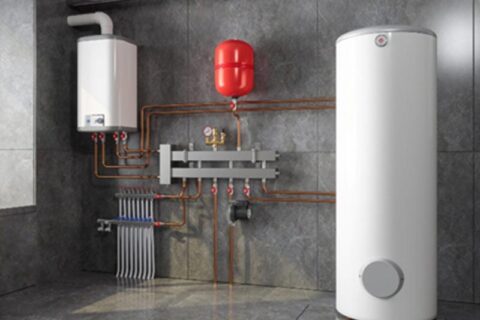A Comprehensive Guide to Hot Water Heaters: Types, Maintenance, and Troubleshooting
Hot water is a necessity in every home, powering daily tasks like showering, washing dishes, and doing laundry. A reliable hot water heater ensures you have warm water when you need it. But with multiple options available and common issues that can arise, understanding how your system works can save you time and money. In this guide, we’ll explore different types of water heaters, essential maintenance, and troubleshooting tips to keep your system running efficiently.
How Hot Water Heaters Work
A hot water heater warms cold water using either electricity, gas, or alternative energy sources. Once heated, the water is stored in a tank or delivered instantly, depending on the model.
There are five main types of water heaters:
1. Storage Tank Water Heaters: These store heated water in a tank until needed.
2. Tankless Water Heaters: These heat water on demand without a storage tank.
3. Heat Pump Water Heaters (Hybrid): These use electricity to transfer heat from the air to warm water.
4. Condensing Water Heaters: These capture heat from exhaust gases to increase efficiency.
5. Solar Water Heaters: These use solar energy to heat water, reducing reliance on electricity or gas.
Each type has unique benefits and drawbacks, which we’ll cover in detail.
Storage Tank vs. Tankless Water Heaters
Two of the most common water heaters are storage tank and tankless models.
Storage Tank Water Heaters
- How They Work: These units heat and store water in a tank, keeping it hot until needed.
- Pros: Lower upfront cost, simple installation, and can serve multiple fixtures simultaneously.
- Cons: Limited hot water supply, standby heat loss (energy wasted to keep water warm).
Tankless (On-Demand) Water Heaters
- How They Work: These heat water only when a tap is turned on, providing endless hot water.
- Pros: Energy-efficient, saves space, and offers a continuous supply of hot water.
- Cons: Higher initial cost, limited flow rate when multiple fixtures are in use.
Signs Your Hot Water Heater Needs Maintenance
Even the best hot water heater requires maintenance to stay efficient. Watch for these warning signs:
1. Fluctuating Water Temperature: A faulty thermostat or sediment buildup could be the cause.
2. Water Discoloration: Rusty or brown water may indicate a corroded tank or failing anode rod.
3. Leaks Around the Tank: Small leaks can turn into bigger problems if not addressed quickly.
4. Noisy Operation: Rumbling or popping sounds usually mean sediment buildup inside the tank.
5. Reduced Hot Water Supply: This may signal a failing heating element or excessive mineral deposits.
Ignoring these issues can lead to higher energy bills and costly repairs.
Hot Water Heater Maintenance Tips
Routine maintenance helps prevent breakdowns and extends the life of your hot water heater. Here’s what you should do:
- Flush the Tank Annually: This removes sediment buildup, improving efficiency.
- Inspect the Anode Rod: Replace it if it’s heavily corroded to prevent rust in the tank.
- Check the Pressure Relief Valve: This safety valve prevents pressure buildup that could lead to explosions.
- Set the Temperature to 120°F: This reduces energy use and prevents scalding.
- Descale Tankless Models: Regularly flush the system to remove mineral buildup from hard water.
Scheduling professional maintenance once a year ensures your system runs smoothly.
When to Repair or Replace Your Hot Water Heater
Most hot water heaters last between 8-15 years, depending on the type and maintenance level. If you’re constantly dealing with repairs, a replacement may be the better option.
Signs You Need a Replacement:
- Your unit is over 10 years old.
- Repairs are becoming frequent and costly.
- Rusty water is coming from your taps.
- Your hot water supply is insufficient.
Newer models are more energy-efficient and can significantly lower utility costs over time.
Choosing the Right Hot Water Heater
If it’s time for a new unit, consider these factors before purchasing:
- Fuel Type: Gas models are typically more cost-effective, while electric models are easier to install.
- Household Size: Larger families may need a bigger storage tank or a high-output tankless unit.
- Energy Efficiency: Look for ENERGY STAR®-rated models to reduce energy bills.
- Space Availability: Tankless and hybrid models save space, making them ideal for smaller homes.
A professional plumber can help you determine the best option based on your needs and budget.
Trust Specialty Plumbing for Your Hot Water Heater Needs
Whether your hot water heater needs maintenance, repairs, or a full replacement, Specialty Plumbing has you covered. Our expert team can diagnose issues, perform routine maintenance, and install high-efficiency models to keep your home running smoothly. Contact us today for reliable and professional plumbing services!
Your Go-To Plumbing Services in north DFW
Specialty Plumbing is a family-owned and operated company proudly serving North DFW, including Celina, Frisco, McKinney, Plano, Allen, and Prosper, and surrounding areas. Our team is committed to providing exceptional customer service because we understand that plumbing issues can arise unexpectedly. Our mission is to resolve them swiftly and efficiently! Reach out to us today, for any plumbing service you need, and witness our commitment to excellence firsthand!
At Specialty Plumbing we love to empower our clients with general knowledge of their plumbing systems! If you have any questions on a topic, please feel free to reach out. We’re here to continue creating content that educates you further on your plumbing system.
